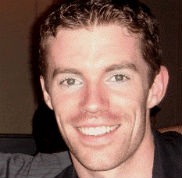The French presidency: When absence makes the heart grow fonder
In politics, publicity is everything. Being seen, being heard, commenting on this, commenting on that...contemporary politicians crave the media spotlight and are rarely out of it. Curiously, however, in the case of the French presidency, absence can often make the French heart grow fonder.
Jacques Delors and Dominique Strauss-Kahn, both major players in the French Socialist party (PS) in their time, would know something about that. Delors served three terms as president of the European Commission before returning to high approval ratings in France. The story of DSK is well-known by now: he served as Head of the IMF and was enjoying high popularity ratings at home before his recent fall from grace.
The fact that both men held international political positions which vastly improved their images on the domestic scene is important. Their popularity in the opinion polls coincided with the influence that they exerted as Frenchmen on the world stage. In any case, such was their popularity that both men were, in turn, regarded as the Socialist Party’s providential men, their best hope for the presidential elections of 1995 and 2012.
But even if these two PS titans never managed to use the popularity gained abroad to propel themselves to the pinnacle of French politics, the idea that putting some distance between themselves and the domestic scene actually benefitted them is quite interesting.
This question of distance also surfaced briefly in Sarkozy’s presidential campaign in 2007. The UMP (centre-right) candidate had announced before the second round that he would retire to a monastery for a few days after his election in order to meditate and prepare himself for the office of president. However, as soon as he had delivered his victory speech, he chose instead to retreat into the world of the rich and famous.
The French looked on in stupefaction as their newly-elected president basked in the light of the media, moving from the delights of an exclusive hotel to those of a businessman friend’s yacht. Four years later, President Sarkozy is attempting to rein in his overt fascination with ‘bling’, keeping his head down at home and holding it high abroad in the hope of improving his low approval ratings ahead of next year’s presidential election.
Apart from realising that it does not come across well to be seen to be living a rock and roll lifestyle among France’s elite, Sarkozy seems to have also learned that it is not necessary to pounce on every news item in order to show one’s proximity to the people.
Perhaps Sarkozy has read Eric Dupin’s insightful book Voyages en France: “There is […] a discernible aspiration to slow down, which does not exclude politics. The permanent overreaction of the outgoing president is analysed and perfectly decoded by the population, and is the cause of his discredit.” In any case, France’s hyperprésident is, for now at least, acting and speaking with more restraint than usual.
Ultimately, it all comes back to the question of distance. The French like a president who is involved but distant, charismatic but reserved. The president should fulfil the role of arbitre, stilling troubled waters with measured words and actions.
One politician who has certainly grasped this point is Martine Aubry. Although she has never left domestic politics, she certainly knows when distance is necessary. Discreet and reserved, Aubry appears to be biding her time with regard to the presidency. Of course this is due, in no small measure, to the theatrical production that the Socialist project has turned into. With the arrest of DSK, the ‘2012 Socialist project: 30 proposals’ has lost its lead player.
Aubry is the most likely understudy but although she hears her name being called out, she does not want to step onto centre stage just yet, not when she is still unsure about her cast and the audience, and perhaps even herself. She will make her presence felt on the presidential stage when she is ready.
France is tired of its hyperpresident and the electorate seems ready for a return to a more Gaullist model: solemn and reserved. In this respect, Martine Aubry has ticked some important boxes. It remains to be seen if she can distance Sarkozy permanently from the Elysée.
Maura Stewart is a Doctoral Research Fellow at the National University of Ireland, Galway.


